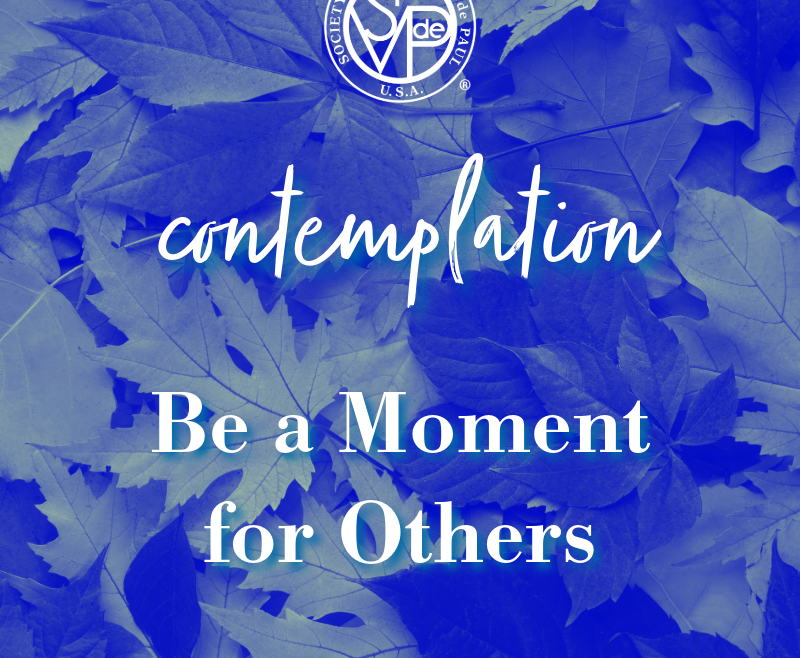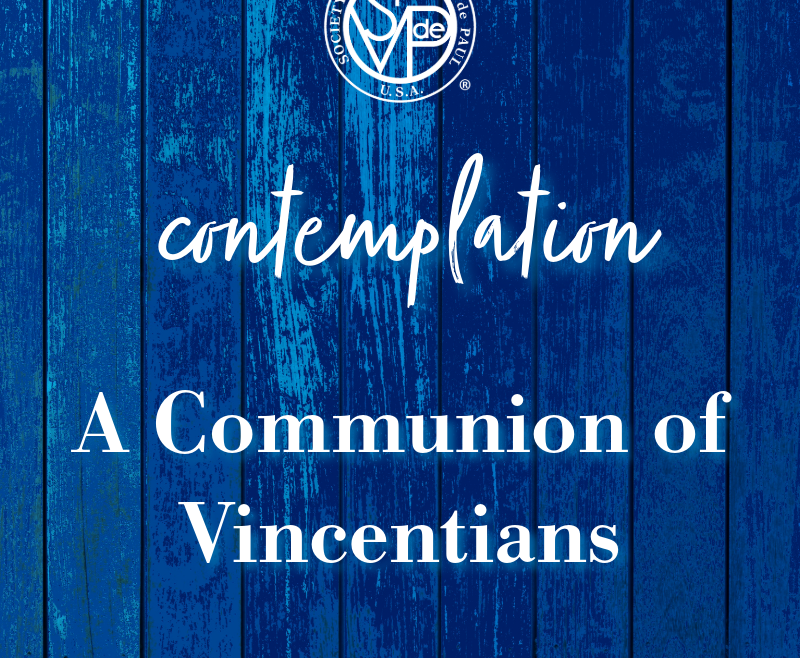We’re More Than You Think
Do you recall why you joined the Society of St. Vincent de Paul? Most likely, you wanted to do good works as a “volunteer” — in the food pantry, thrift store, shelter, Home Visit, etc. — and be of service to those in need. It most likely wasn’t that you were looking for a faith-sharing group.
Why have you remained a Vincentian? Of course, it feels good to be of service to those in need. But the need is (always) so great, and we cannot “solve” everyone’s problems — so why do we continue? If you have been a Vincentian for any length of time, I suspect you know the answer: It is because, by the grace of God, that we are able to grow in holiness, in our Vincentian spirituality. How? By the transformative experience of a personal encounter with Jesus Christ, the suffering servant, in those we serve. Being a Vincentian is indeed a calling (by Christ) and it is our vocation.
So, my Vincentian brothers and sisters, the Society of St Vincent de Paul is more than you think. We are not just another agency doing good works — rather, we are Vincentians following a call to (our own) holiness and our own spiritual growth. It is through that growth and orienting ourselves to God that the Holy Spirit works through all of us in service to those in need, making a difference in their lives and ours. In effect, we become missionaries, bringing the Gospel of Christ to someone via a simple act of love. There is no other organization like us!
I would also argue that by emptying ourselves (our egos) and allowing the Holy Spirit inside us, discerning God’s will to guide our lives, can only lead to our own personal growth and transformation. This is no “one-and-done” growth, but rather, an ongoing transformation every day of our lives. Once again, the Society of St. Vincent de Paul offers us a perfect mechanism to do this on a regular basis. As Tim Williams wrote in a recent Contemplation column, this “Discernment of God’s will, then, is not a single event; a flash of insight that tells us every step to take for the rest of our lives.”
Blessed Frédéric put it this way: “It is not enough to take a superficial glance, you need repeated reflection.”
This “repeated reflection” can occur when we regularly meet Jesus in those we serve. Think about every person’s encounter with Jesus in the Gospel — from Simon Peter, Matthew, and all the Apostles, to the leper, the blind, the hemorrhaging woman who but touched the tassel of the cloak of Jesus and so was healed, and all the rest. With the eyes of faith, each of them was changed/transformed after that personal encounter with Christ. After our personal encounters with those in need, so it must be for us — we are continually transformed and, ultimately the results come not from anything we do on our own, but rather via God working through us.
This a cornerstone of our Vincentian charism — when we open ourselves to personal encounters with those in need, we are changed. We have a conversion of heart. We are able to go beyond our limits — we are transformed. We thus can “See the face of Christ and Be the face of Christ.” We do this in friendship and fellowship with our Vincentian brothers and sisters, serving God in the person of those in need, growing in holiness together. So we become more than an agency or people just giving away food or serving at shelters — we begin to see differently, and to experience Christ directly in service to those in need. Thank God for them!
Richard Rohr puts it this way: “Christ is the light that allows people to see things in their fullness and thus to see Christ everywhere else. In fact, a mature Christian sees Christ in everything and everyone else, which will always demand more of us, and give us no reasons to fight, exclude or reject anyone.”
And, of course, Vincent recognized this when he said “the poor are our masters.”
It is my prayer that you focus on the graces you have received from this beautiful Vincentian vocation, and I hope you invite others to personally experience these graces. You may doubt your “worthiness” or your ability to make a difference in the lives of those we serve. Remember what Jesus said, “It was not you who chose Me, but I who chose you and appointed you to go and bear fruit that will remain, so that whatever you ask the Father in My name he may give you.” Echoing the words of Fr. Pat McDevitt, C.M. from a recent retreat, I say to you: My fellow Vincentians — you are special, you are chosen, you are loved, and you are sent. That is enough!
I am confident that if you and I but remember that this unearned grace — the good news of the Gospel in our lives — is enough, then Christ will work through us and be well-pleased with us, his simple and humble servants.
May the grace of the Lord Jesus Christ and the love of God and the fellowship of the holy Spirit be with all of you.
Brian
Brian Burgess
Board Liaison to National Subsidiaries










